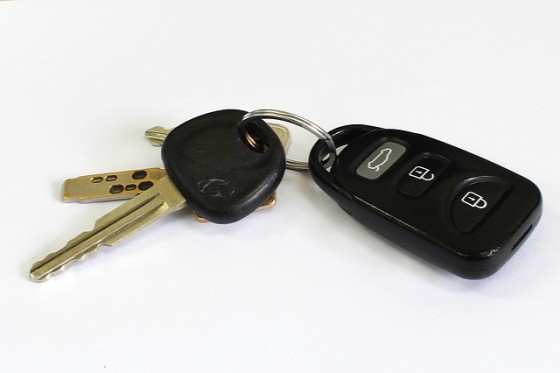Where Is My Car Title? (And Why Does It Matter?)
 A call came in the other day from a woman – let’s call her Jan – who had purchased a used car from a car dealer and after four months had not received her registration. Jan had been pulled over and told that the registration was expired and that she was NOT the car’s owner – the car title was still missing.
A call came in the other day from a woman – let’s call her Jan – who had purchased a used car from a car dealer and after four months had not received her registration. Jan had been pulled over and told that the registration was expired and that she was NOT the car’s owner – the car title was still missing.
Jan had her purchase contract, finance agreement, and copies of the payment coupons from the bank. She had called the bank, but they told her it wasn’t their problem and she’d have to continue to make payments. She called the Department of Motor Vehicles and discovered that the registration could not be transferred to her because the prior lienholder hadn’t been paid. What did that mean for Jan? What were her options?
Where Was The Car Title?
The car title is the legal document that certifies that you’re the true owner of the vehicle. If you’ve taken out a loan to pay for the car, the finance company (the “lienholder”) will also be listed on the title until you pay it off. You’ll need to have that title in order to register your car in California, and you have to register in order to drive. In other words, you can’t use the car without the title. That’s what happened to Jan – she was driving an unregistered vehicle because she didn’t have the title she needed to get it registered.
When a car is sold and it still has a lien on it (meaning the auto loan isn’t paid off), the lienholder has to sign off on transferring the title to the new owner. Typically, they’ll only do that once they’ve received payment for the loan. It seems that whoever owned the car before Jan hadn’t fully paid off the loan, so that person’s finance company refused to transfer the title.
What Happens To Jan?
Under California law the seller, here the car dealer, “warrants” that it has the ability to deliver good title. The failure to do so is a breach of that warranty. In other words, car sellers automatically make a promise to buyers that they can transfer the title. If that doesn’t happen, the seller has failed to keep up its end of the bargain. The buyer has the right to sue and force the dealer to either deliver the title by paying off the old finance company or refund the buyer’s money and pay off the buyer’s finance company. In some cases, the dealer may even be required to pay the buyer’s legal fees.
So, Jan can sue the dealer. She can also sue the finance company, as the holder of the sales contract. Since the car was purchased from the dealer and the finance contract was later sold by the dealer to the finance company, the finance company becomes the “holder in due course”. As the holder of the note Jan can, according to California Civil Code § 2983.5, assert all of the same rights she has against the dealer AND the finance company. In other words, the finance company’s right to collect the payment is only as good as the original right of the car dealer to collect. Since the dealer could not deliver title to the car it has no right to collect any monies.
After the lawsuit(s), she’ll either end up with the title and the car or with a full refund. However, lawsuits can take a long time and in the meantime, Jan can’t drive her unregistered car. What can she do?
Unfortunately, not much. Once she sues the finance company, she may be able to ask the court to allow her to stop making payments while the case is decided. If she needs to drive, she may have to either borrow or rent a car. Depending on the circumstances, she may be able to sue the finance company and dealer for the cost of driving a rental car while she couldn’t use the car she purchased.
What Should I Do If I Have Car Title Problems?
Your first step should be to file a complaint with the Department of Motor Vehicles Investigation Division. This Division is responsible for protecting the public from fraud and investigating title issues. Then you should gather all of the documentation for the purchase and see an attorney for a consultation. Your attorney will be able to help you determine what’s holding up your car title and what your options are for getting it quickly.
Are you in search for a certified attorney to represent you?
Let us help you find one today!

